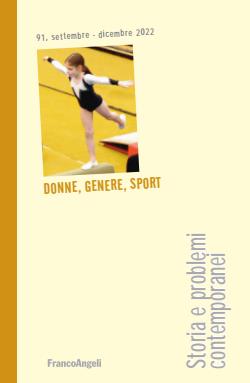
LIBRI DI MARCO DE NICOLÒ



Fortifications, walls, high technology: until today the presence of walls among nations and among communities, is very thick. If the fallen of Berlin’s wall, in 1989, had been welcomed from the world public opinion, this way of division has increased: Ceuta and Melilla, Cisgiordania, Cyprus, Morocco-Western Sahara the list could be continued. From both parts of every wall growth opposite memories, hostile identities: building a wall is more easy, than pulling down it.
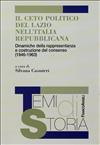
Dinamiche della rappresentanza e costruzione del consenso (1946-1963)
Sulla base di un’accurata analisi della distribuzione geografica e del significato del voto nel collegio unico del Lazio, il testo ricostruisce le principali dinamiche attivate dalle scadenze elettorali e dall’esito delle consultazioni, le circostanze e i fattori che hanno consentito il radicamento dei partiti politici sul territorio, le modalità e i contenuti delle nuove forme di comunicazione politica che hanno caratterizzato il loro rapporto con l’elettorato
cod. 1792.155
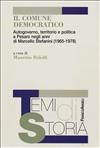
Autogoverno, territorio e politica a Pesaro negli anni di Marcello Stefanini (1965-1978)
Nell’Italia repubblicana fu spesso nelle amministrazioni municipali che emerse una classe dirigente all’altezza della modernizzazione del Paese e di una democratizzazione della partecipazione politica. Il libro esamina il caso di Pesaro, con attenzione agli anni tra il 1965 e il 1978, in cui sindaco fu Marcello Stefanini. Una vicenda esemplare degli anni della “grande trasformazione”, attraverso un forte nesso tra tradizioni civiche e culture di governo municipale, classi dirigenti e sviluppo della società locale.
cod. 1792.145

The Unsuccessful Elite. Roman Bourgeoisie and Papal States (1847-1870) (by Marco De Nicolò) - The essay analyses the role of the Roman bourgeoisie in the last decades of the Papal power and it affords the questions if it was an elite or not. The social and political context in which the Roman bourgeoisie grew and made its choices did not allow it more that narrow margins of action because the productive structure did not spur investments in landed properties and because the administrative institutions open to laymen allowed only poor initiative. In addition the Papal power, hostile to modernization and timorous of innovations, restrained every possible political and social development. The conclusion is that the Roman bourgeoisie was weak, with a poor political and cultural conscience of itself, so that it was not able to play an elite’s role.
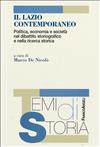
Politica, economia e società nel dibattito storiografico e nella ricerca storica
Frutto di un convegno, il testo tratteggia un quadro dettagliato degli aspetti politici, economici e sociali del Lazio in età contemporanea. L’approccio scelto è utile a comprendere i motivi e i modi del processo di regionalizzazione, il ruolo delle diverse comunità, l’integrazione in un’unità amministrativa regionale.
cod. 1792.115

Multidisciplinary notes and a research for definitions In the last thirty years local historiography has become more mature. In the case of regional history it seems necessary to search for deeper and more precise definitions. The useful collaboration with other disciplines, as well as the comparison among different regional and local histories, can help the historians who work about these themes. One of the points which are always discussed is the regional ambit: if it seems reasonable to criticize the reduction of the regional history to its administrative borders, this reductions very often seems to be the dimension in which it is circumscribed. Indeed, this model has not prevented to carry out researches either on more circumscribed or larger areas. The historian has been able “to pursue” his own specific topic vaguely referring to this administrative outline. What seems paradoxical is the scanty number of studies which could take advantage from these borders, that is the administrative and institutional history.
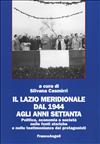
Politica, economia e società nelle fonti storiche e nelle testimonianze dei protagonisti
cod. 2000.1103



cod. 235.5

Guida per le ricerche
cod. 235.4